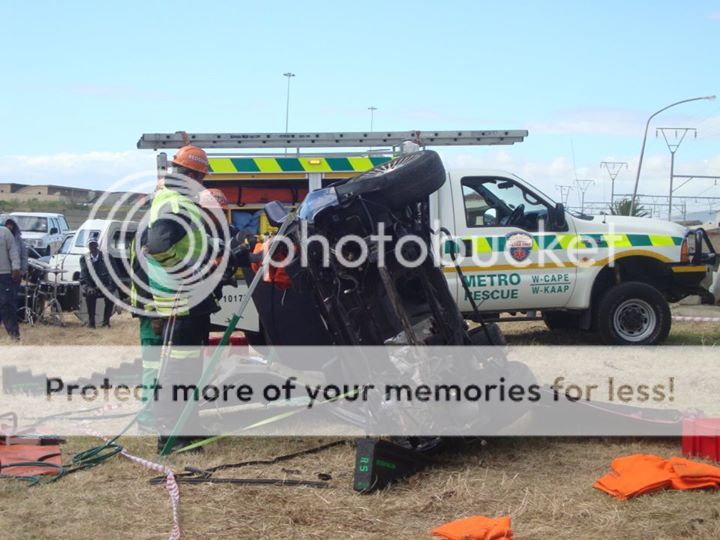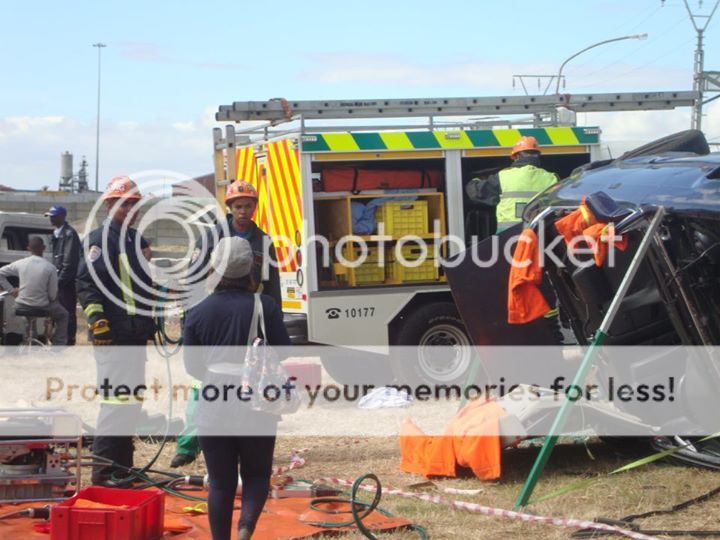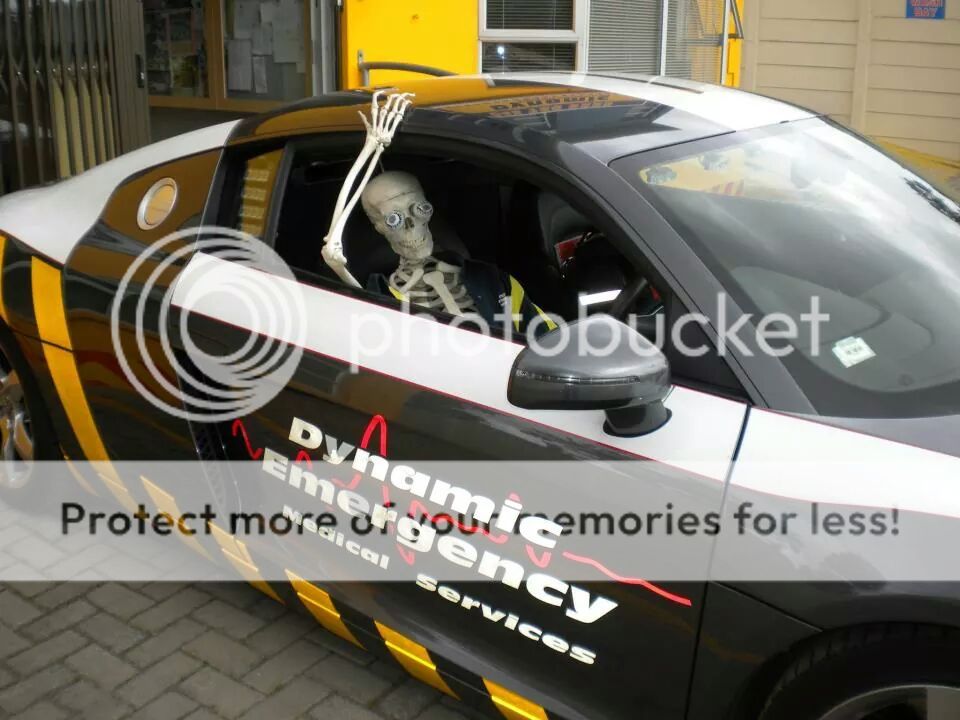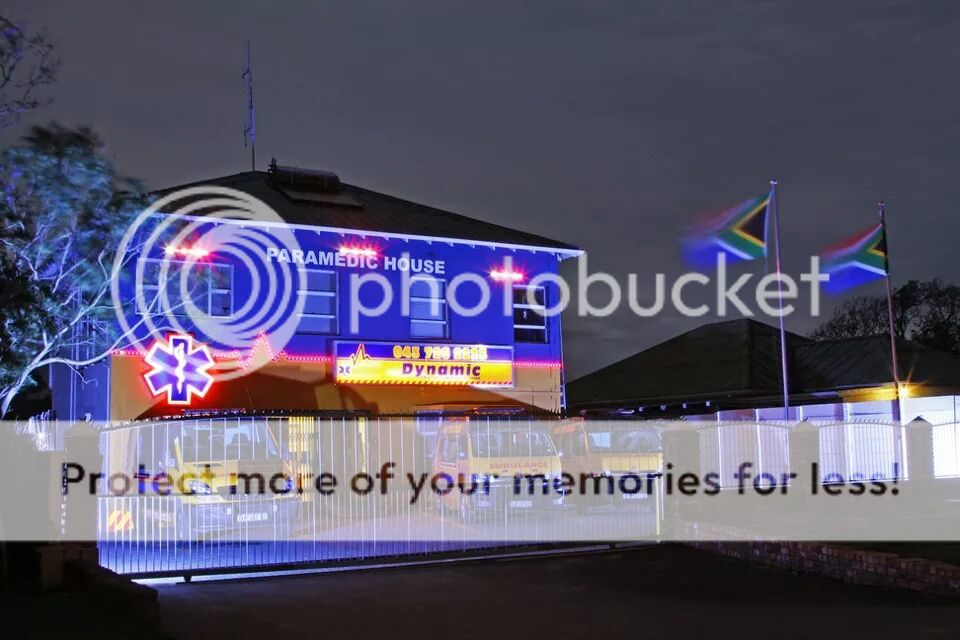shelvpower
Forum Crew Member
- 78
- 10
- 8
Hi Guys I have decided to start a thread that explains a little bit more on how our EMS services operate in South Africa.
As I'm only a 17yo Volunteer there ought to be some mistakes in my post but I will try to keep the information as accurately as possible.
First of all, the EMS services can be divided into two main groups namely the Private services and Goverment services.
Different people have different opinions on both sectors, personally I will choose the goverment service in our area, Western Cape Metro EMS. They run Basic Life Support, Intermediate Life Support and Advanced Life Support ambulances and also has a highly sophisticated rescue division. Metro mainly focuses on people without medical aid but do also transport people with medical aid. On a average shift in my town each ambulance will run approximately 8-11 calls per shift (12 hour shifts, 7am to 7pm) with almost one being a guaranteed stabbing/assault.
The two main private companies is ER24 and Netcare 911.
They focus on people who has medical aid but also transport patients without medical aid in certain circumstances like motor vehicle accidents. Both services also has Helicopters. Netcare 911 also have a airplane.

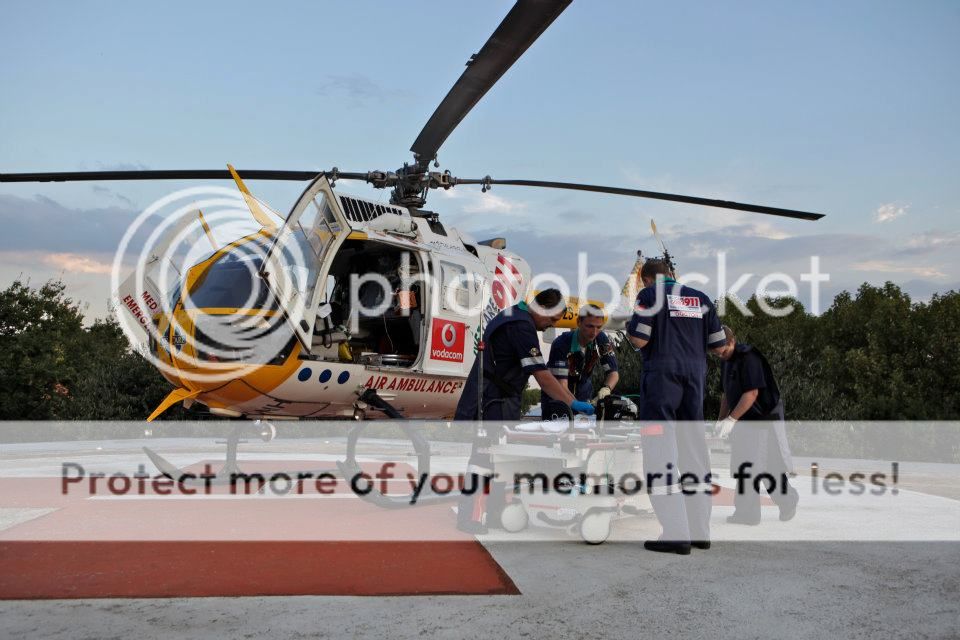
In South Africa the gap between the rich and the poor is big. Allot of people in the lower class lives in Informal settlements in houses known as shacks.
The goverment EMS's calls mostly originates from the lower class settlements and allot of the times includes stabbings and assaults.



Due to the shacks situated so close to each other allot of them burn down at once when a fire breaks out in the settlement, 100-200 shacks at once is normal in places like Cape Flats and more dense situated settlements.
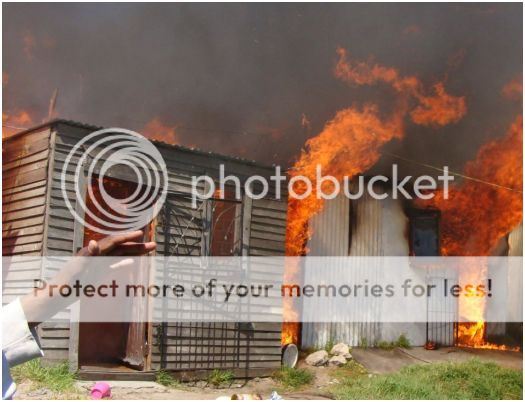
The hospitals is also divided into private and goverment hospitals.
Our local goverment hospital has a very good trauma unit and even patients with medical aid tends to end up here.
EMS qualifications consists of the following:
BAA-Basic Ambulance Assistant ( More or less equal to US EMT-B)
AEA-Ambulance Emergency Assistant ( More or less equal to US EMT-I)
CCA- Critical Care Assistant, this qualification is recognized as a Advanced Life Support qualification.
The above mentioned courses is all classified under "short courses". There have been mentioned that they will not longer continue in the near future and will be replaced by the longer university degrees.
The current university degrees consists off the following:
ECT- Emergency care technician (not sure how long it is)
National Diploma in Emergency Medical Care (3 year full time degree)
Bachelors of Technology in Emergency Medical Care (1 year, done after completing the 3 year NDIP degree)
The NDIP and BTECH is currently being replaced by the Bachelors degree in Emergency Medical Care which is a 4 year full time degree that specializes in pre hospital care and all twelve rescue modules.
After completing the four year degree one can also do your masters and doctorate degree.
Later on I will add more information and pictures.
I hope you guys found this thread interesting, I will gladly answer any questions that you guys post to this thread.
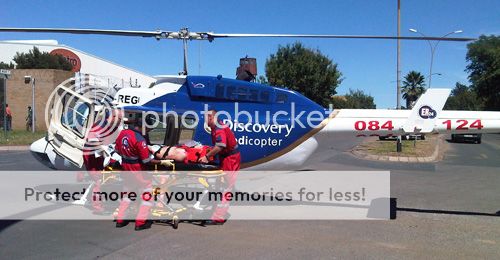








As I'm only a 17yo Volunteer there ought to be some mistakes in my post but I will try to keep the information as accurately as possible.
First of all, the EMS services can be divided into two main groups namely the Private services and Goverment services.
Different people have different opinions on both sectors, personally I will choose the goverment service in our area, Western Cape Metro EMS. They run Basic Life Support, Intermediate Life Support and Advanced Life Support ambulances and also has a highly sophisticated rescue division. Metro mainly focuses on people without medical aid but do also transport people with medical aid. On a average shift in my town each ambulance will run approximately 8-11 calls per shift (12 hour shifts, 7am to 7pm) with almost one being a guaranteed stabbing/assault.
The two main private companies is ER24 and Netcare 911.
They focus on people who has medical aid but also transport patients without medical aid in certain circumstances like motor vehicle accidents. Both services also has Helicopters. Netcare 911 also have a airplane.


In South Africa the gap between the rich and the poor is big. Allot of people in the lower class lives in Informal settlements in houses known as shacks.
The goverment EMS's calls mostly originates from the lower class settlements and allot of the times includes stabbings and assaults.



Due to the shacks situated so close to each other allot of them burn down at once when a fire breaks out in the settlement, 100-200 shacks at once is normal in places like Cape Flats and more dense situated settlements.

The hospitals is also divided into private and goverment hospitals.
Our local goverment hospital has a very good trauma unit and even patients with medical aid tends to end up here.
EMS qualifications consists of the following:
BAA-Basic Ambulance Assistant ( More or less equal to US EMT-B)
AEA-Ambulance Emergency Assistant ( More or less equal to US EMT-I)
CCA- Critical Care Assistant, this qualification is recognized as a Advanced Life Support qualification.
The above mentioned courses is all classified under "short courses". There have been mentioned that they will not longer continue in the near future and will be replaced by the longer university degrees.
The current university degrees consists off the following:
ECT- Emergency care technician (not sure how long it is)
National Diploma in Emergency Medical Care (3 year full time degree)
Bachelors of Technology in Emergency Medical Care (1 year, done after completing the 3 year NDIP degree)
The NDIP and BTECH is currently being replaced by the Bachelors degree in Emergency Medical Care which is a 4 year full time degree that specializes in pre hospital care and all twelve rescue modules.
After completing the four year degree one can also do your masters and doctorate degree.
Later on I will add more information and pictures.
I hope you guys found this thread interesting, I will gladly answer any questions that you guys post to this thread.

















